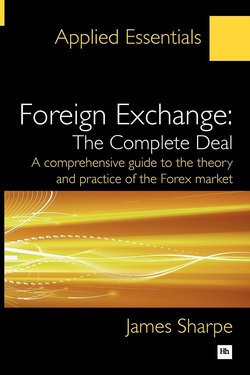Читать книгу Foreign Exchange: The Complete Deal - James McDowell. Sharpe - Страница 20
На сайте Литреса книга снята с продажи.
1990s
ОглавлениеIn July and August 1992 sterling came under intense selling pressure, which prompted the Bank of England to intervene to keep sterling above the lower band. The most famous seller was George Soros. On 15 September, Black Wednesday, interest rates were raised to 15% but the selling continued and Chancellor Norman Lamont was forced to announce that the UK was leaving the ERM the next day. The pound fell 10% immediately. The scale of intervention is not known but it ran into billions. It is believed that no losses were incurred. These transactions were turned for a profit in later years.
The importance of these events cannot be overstated. If sterling had weathered this attack it probably would have entered the euro in 1999. Instead, it reinforced the euro sceptic camp and floating rate advocates. The UK would not again attempt to control the value of sterling. For the Conservative government it was a total disaster and arguably resulted in the party losing its reputation for financial soundness on the dealing room floor.
What the devaluation did achieve was to ignite a strong recovery in the economy and an improvement in the current account. From 1993 to 1997 a deficit of £10.6bn was transformed to a surplus of £6.6bn. More importantly, inflation did not erupt as the world economy was experiencing deflationary pressures. In 1996 sterling was again on the rise backed by high interest rates, relatively strong economic growth and subdued inflation.
